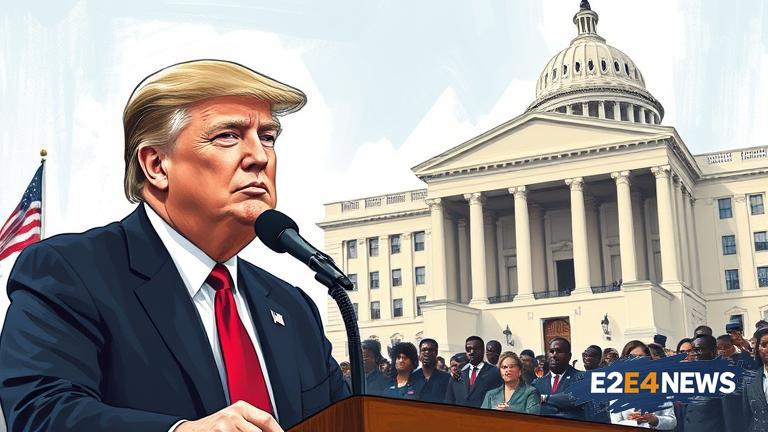In a significant blow to the Trump administration’s immigration policies, a US district judge has prevented the government from cutting off federal funds to cities that refuse to cooperate with federal immigration authorities. The ruling, which was handed down on November 20, 2017, found that the administration’s attempt to withhold funds from so-called sanctuary cities was unconstitutional. The judge’s decision was in response to a lawsuit filed by the city of Los Angeles and the county of Los Angeles, which argued that the administration’s policy was an overreach of executive power. The Trump administration had threatened to cut off funds to cities that did not comply with federal immigration laws, including those that refused to detain immigrants who were in the country illegally. However, the judge found that the administration’s policy was not authorized by Congress and was therefore unconstitutional. The ruling is a major victory for cities and counties that have refused to cooperate with federal immigration authorities, and it is likely to be appealed by the Trump administration. The case is part of a larger debate over immigration policy and the role of local governments in enforcing federal immigration laws. Sanctuary cities, which include major metropolitan areas such as New York City, Los Angeles, and Chicago, have become a focal point in the debate over immigration policy. These cities have refused to cooperate with federal immigration authorities, citing concerns over the impact on public safety and community trust. The Trump administration has argued that sanctuary cities are harboring criminals and posing a threat to national security. However, advocates for sanctuary cities argue that they are actually making communities safer by encouraging immigrants to report crimes and cooperate with local law enforcement. The judge’s ruling is likely to have significant implications for the Trump administration’s immigration policies, which have been a major focus of the president’s agenda. The administration has taken a hardline stance on immigration, including the implementation of a travel ban targeting predominantly Muslim countries and the deployment of National Guard troops to the US-Mexico border. The ruling is also likely to be seen as a victory for the civil rights community, which has argued that the Trump administration’s immigration policies are discriminatory and unconstitutional. The case is part of a larger trend of cities and states pushing back against the Trump administration’s policies, including those related to immigration, healthcare, and climate change. The ruling is likely to be appealed, and it may ultimately be decided by the Supreme Court. In the meantime, the decision is likely to have significant implications for the Trump administration’s ability to implement its immigration policies. The administration has argued that it has the authority to withhold funds from cities that do not comply with federal immigration laws, but the judge’s ruling suggests that this authority is limited. The case has also highlighted the tensions between the federal government and local governments over immigration policy. The Trump administration has argued that local governments are obligated to cooperate with federal immigration authorities, but many cities and counties have refused to do so. The ruling is likely to embolden other cities and counties to resist the Trump administration’s immigration policies, and it may ultimately lead to a re-evaluation of the administration’s approach to immigration enforcement. The decision is also likely to have significant implications for the 2020 presidential election, as immigration policy is likely to be a major issue. The Trump administration’s hardline stance on immigration has been a major focus of the president’s agenda, and the ruling is likely to be seen as a setback for the administration’s efforts to restrict immigration. The case has also highlighted the importance of the judiciary in checking the power of the executive branch, and it is likely to be seen as a significant victory for the rule of law. The ruling is likely to be appealed, but for now, it is a major victory for cities and counties that have refused to cooperate with federal immigration authorities. The decision is also likely to have significant implications for the future of immigration policy in the United States, and it may ultimately lead to a more nuanced and balanced approach to immigration enforcement.
